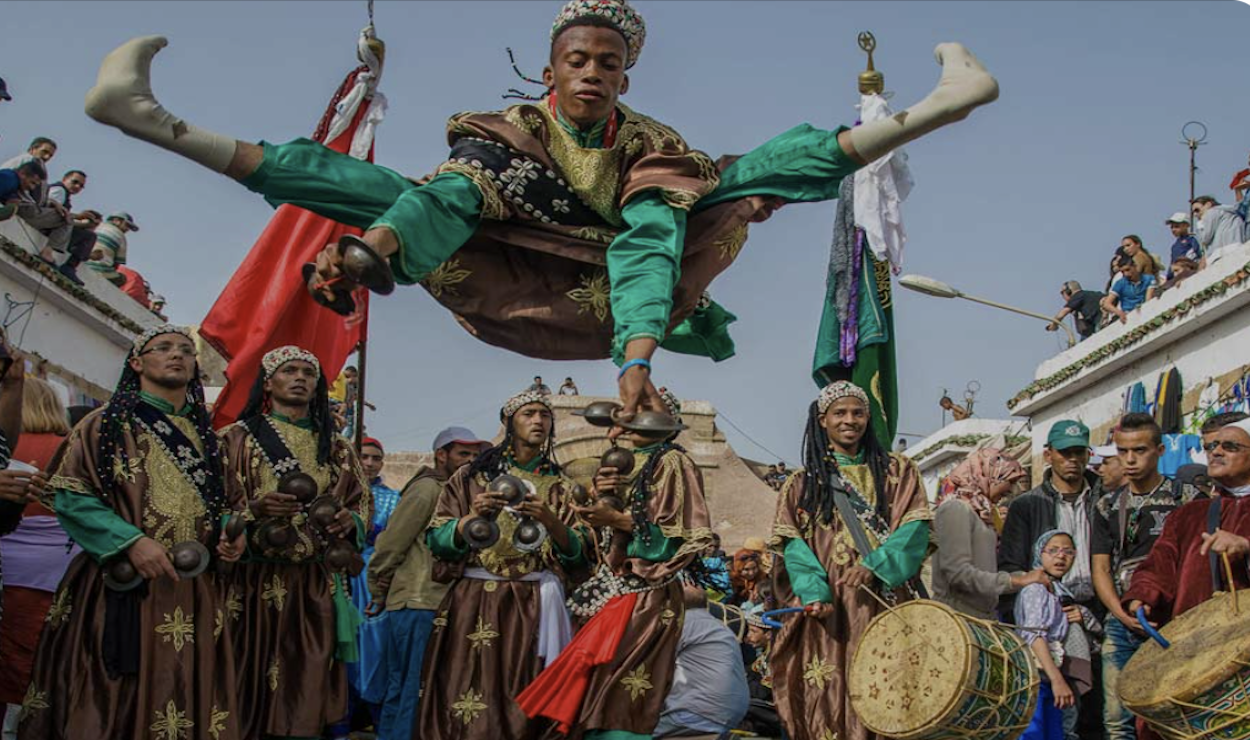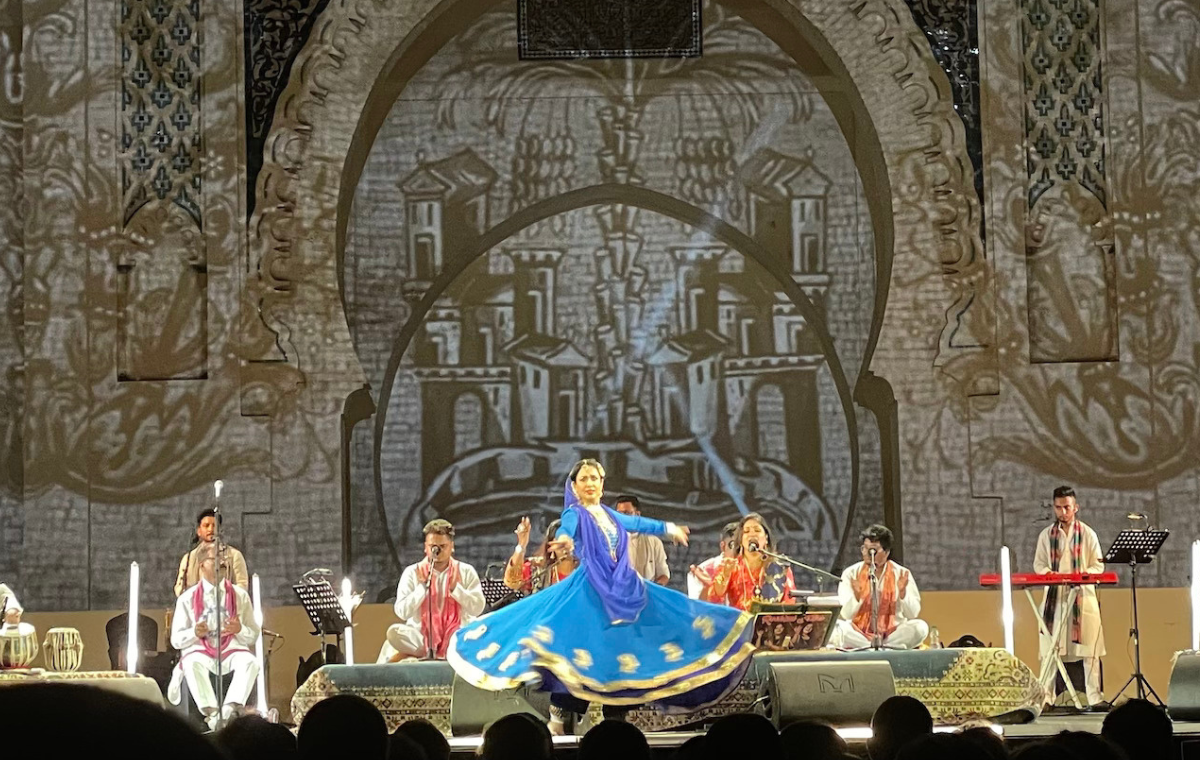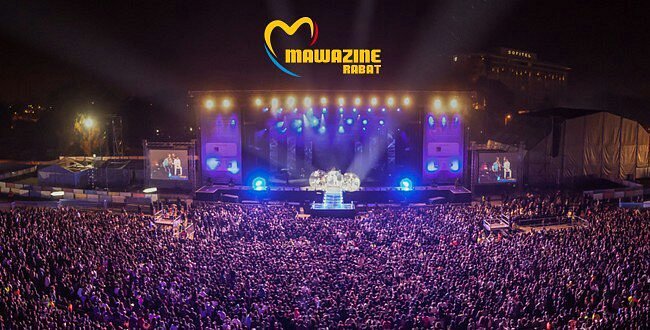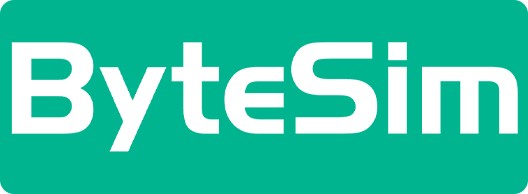Les meilleurs festivals au Maroc
Feb 25,2025 | Milo
Table des matières
Quels types de festivals ont lieu au Maroc ?
Les meilleurs festivals culturels au Maroc
Meilleurs festivals de musique au Maroc
Jours fériés au Maroc : calendrier 2025
Restez connecté au Maroc avec ByteSIM
Des forfaits qui pourraient vous intéresser
Le Maroc s'enorgueillit d'un riche patrimoine culturel façonné par l'histoire, la religion et l'expression artistique, donnant naissance à une grande variété de festivals. Chaque année, le pays attire des visiteurs désireux de s'immerger à la fois dans des traditions ancestrales et des célébrations contemporaines, mêlant musique, art, spiritualité et histoire.
Pour vous aider à vivre le meilleur des festivités marocaines, nous avons conçu ce guide des événements incontournables. Que vous soyez attiré par les rassemblements religieux et culturels ou par les festivals de musique moderne, vous trouverez maintes occasions de vous connecter aux traditions dynamiques et colorées du pays.
Quels types de festivals ont lieu au Maroc ?
Les festivals marocains sont une fusion vibrante de religion, d'histoire et de culture, offrant un large éventail de célébrations. Qu'ils soient centrés sur la spiritualité, la musique ou l'art, ces événements jouent un rôle majeur dans les traditions locales tout en captivant les visiteurs.
À travers le pays, vous découvrirez des événements mettant en scène des danses traditionnelles, des délices culinaires, des défilés animés, des expositions artistiques uniques et des rassemblements spirituels. Votre expérience dépendra grandement du type de festival que vous choisirez.
Quelle que soit votre préférence, les festivals marocains offrent une excellente opportunité d'immersion culturelle. Toutefois, notez que bon nombre de ces célébrations suivent le calendrier lunaire, ce qui signifie que leurs dates changent chaque année. Pensez donc à vérifier à l'avance !
Les meilleurs festivals culturels au Maroc
Nous débutons notre voyage par les festivals culturels, où les traditions séculaires s'entremêlent avec l'héritage islamique. Ces événements mettent en lumière la riche diversité du pays, offrant une expérience inoubliable qui saura vous captiver.
Le Ramadan
Le Ramadan, neuvième mois du calendrier islamique, est une période religieuse majeure au Maroc et dans le monde musulman.
Souvent désigné comme le « Mois sacré de l'Islam », il est marqué par un jeûne quotidien observé par les habitants du lever au coucher du soleil. Les voyageurs restent libres de manger et d'explorer en journée, mais il est important de noter que de nombreux commerces peuvent être fermés et que les rues sont généralement plus calmes jusqu'à la tombée de la nuit.
Bien que les visiteurs ne soient pas tenus de jeûner, il est préférable de faire preuve de discrétion et d'éviter de manger, boire ou fumer en public, par respect pour ceux qui observent le jeûne.

Au coucher du soleil, les habitants se rassemblent pour l'Iftar, le repas marquant la rupture du jeûne quotidien. C'est une merveilleuse occasion pour les voyageurs de partager un repas, de s'imprégner des traditions marocaines et de vivre l'esprit de communauté. Le Ramadan tombe généralement entre février et mars, bien que les dates changent chaque année en fonction du calendrier lunaire.
Conseil : Si vous visitez le Maroc pendant le Ramadan, prévoyez une tenue vestimentaire décente : des vêtements amples couvrant les épaules et les genoux sont recommandés. Dans certains lieux, un foulard peut également être nécessaire pour les femmes afin de se couvrir les cheveux.
Yennayer
Yennayer, aussi appelé le Nouvel An amazigh, marque le début du calendrier agraire et est célébré chaque année en janvier. En 2025, les festivités se sont déroulées du 11 au 14 janvier.
Contrairement à de nombreuses fêtes nationales, Yennayer est principalement observé dans les régions à forte population amazighe (berbère). Le cœur des festivités bat près des montagnes de l'Atlas, où spectacles traditionnels et événements culturels donnent vie à la célébration.

Au Maroc, les célébrations de Yennayer sont riches en musique, danse, coutumes et artisanat traditionnels, reflétant le précieux patrimoine amazigh. Dans certaines villes, vous pourrez assister à des spectacles uniques, tels que l'Ahwash et l'Ahidous – deux formes distinctes d'expression artistique amazighe.
Pour un souvenir unique, rendez-vous au Village Artisanal Marocain de la Place Rachidi, à Casablanca, où vous pourrez dénicher des trésors faits main.
Lors des festivités de Yennayer, n'hésitez pas à porter des vêtements légers et confortables, comme des shorts et des hauts. Il est également conseillé d'avoir un peu d'argent liquide sur soi, au cas où vous souhaiteriez acquérir un cadeau artisanal unique.
Le Festival des Amandiers en Fleurs
Organisée dans la ville animée de Tafraoute, célèbre pour ses paysages époustouflants toute l'année, cette fête est une célébration de la tradition berbère qui accueille chaleureusement tous les visiteurs.
Le Festival des Amandiers en Fleurs a lieu en février, marquant la floraison des arbres.
Tout au long de l'événement, vous serez immergé dans une atmosphère vibrante, rythmée par la musique et la danse berbères traditionnelles. C'est une occasion unique de se connecter à la culture locale et de goûter à l'hospitalité légendaire qui rend ce voyage vraiment inoubliable.

Outre les spectacles culturels, ce festival marocain est aussi une excellente opportunité de savourer une cuisine locale authentique. C'est le moment parfait pour s'aventurer dans les montagnes de l'Anti-Atlas et admirer une vue imprenable sur la ville et les amandiers en fleurs.
N'oubliez pas de prévoir de l'argent liquide, car vous voudrez sûrement goûter aux délicieux plats traditionnels tout en vous imprégnant de l'ambiance vibrante du Festival des Amandiers. Pensez aussi à des vêtements légers pour rester au frais en journée, que ce soit pour une promenade relaxante le long de la côte ou sur les sentiers de montagne.
Aïd el-Fitr et Aïd el-Adha
L'Aïd el-Fitr et l'Aïd el-Adha figurent parmi les célébrations religieuses les plus importantes du Maroc.
L'Aïd el-Fitr marque la fin du Ramadan et la rupture du jeûne. Cette célébration annuelle est rythmée par des prières, des visites à la mosquée et des rassemblements familiaux. Pour les voyageurs, c'est une occasion unique de déguster des mets singuliers et d'approfondir leur compréhension des traditions islamiques marocaines.

L'Aïd el-Adha honore le sacrifice du fils d'Ibrahim en dévotion à Dieu. Cette célébration a lieu pendant le dernier mois du calendrier islamique, Dhū al-Ḥijjah, durant lequel les Marocains sacrifient traditionnellement un animal, tel qu'un mouton, une chèvre, une vache ou un chameau, en partageant la viande avec des invités. C'est aussi un moment pour échanger des cadeaux entre famille et amis.
Contrairement à l'Aïd el-Fitr, l'Aïd el-Adha est marqué par des traditions distinctes à travers les différents pays musulmans. De plus, bien que le pèlerinage soit une pratique courante durant l'Aïd el-Adha, la participation n'est pas obligatoire pour tous.
Les deux festivals étant profondément religieux, il est important de respecter les coutumes islamiques. Cependant, les visiteurs peuvent toujours interagir avec les habitants de manière respectueuse et significative.
Meilleurs festivals de musique au Maroc
La richesse culturelle du Maroc s'étend au-delà des festivals religieux et culturels pour englober sa scène musicale dynamique.
Festival Gnaoua et Musiques du Monde d'Essaouira
Organisé chaque année du 26 au 28 juin, Essaouira accueille l'une des célébrations les plus renommées du pays. Le festival est un hommage au riche héritage musical du peuple Gnaoua, offrant une fusion dynamique de sons.
Depuis près de trois décennies, le Festival Gnaoua et Musiques du Monde d'Essaouira cultive un espace unique où des musiciens internationaux se réunissent pour mêler leurs rythmes aux traditions spirituelles de la musique Gnaoua, accompagnés de spectacles de danse captivants.

Ce festival de musique forge un lien remarquable entre les mélodies traditionnelles Gnaoua et les rythmes mondiaux, offrant une fusion distinctive dans laquelle les invités peuvent s'immerger. Outre la musique, l'événement propose des ateliers, des expositions artistiques et une immersion profonde dans les riches traditions culturelles du peuple Gnaoua.
Prévoyez des vêtements légers pour les chaudes journées de juin, et n'oubliez pas une veste pour les soirées plus fraîches ou les journées venteuses, typiques d'Essaouira. C'est aussi une bonne idée d'apporter de l'argent liquide supplémentaire pour goûter à la cuisine marocaine locale, aux boissons, et pour acheter des souvenirs à rapporter chez soi.
Festival des Musiques Sacrées du Monde de Fès
Le Festival annuel des Musiques Sacrées du Monde de Fès sert de plateforme pour favoriser la paix et les échanges culturels entre ses participants.
Durant cet événement, les visiteurs peuvent vivre un mélange harmonieux de mélodies traditionnelles et spirituelles. Le patrimoine musical marocain s'entremêle aux rythmes internationaux, créant une fusion unique qui encourage les participants à se connecter au-delà des différences culturelles et religieuses.

Au-delà des performances live, le Festival de Fès propose des ateliers et des discussions interactives où les passionnés de musique peuvent explorer le rôle de la musique pour favoriser la communication et la compréhension entre les cultures.
Les participants peuvent également prendre part à des visites culturelles guidées de Fès, l'une des quatre villes impériales du Maroc. Ces visites offrent un aperçu des traditions marocaines, des coutumes locales et des racines historiques profondes de l'un des festivals de musique les plus renommés du pays.
Si vous prévoyez d'assister au Festival des Musiques Sacrées du Monde de Fès, assurez-vous d'acheter vos billets à l'avance. Emportez des vêtements légers et respirants, car les températures diurnes peuvent grimper jusqu'à 32 °C, et prévoyez des fonds supplémentaires pour les visites et les souvenirs.
Festival Mawazine
Pour une expérience inoubliable au Maroc, direction Rabat pour le Festival Mawazine, un événement électrisant qui se déroule entre mai et juin.
Ce festival met en valeur la riche diversité culturelle du Maroc à travers la musique, mêlant des genres contemporains comme le rock, le jazz et la pop à des mélodies traditionnelles. Avec des prestations de talents locaux et de stars internationales, Mawazine offre une fusion sonore dynamique et un spectacle visuel immersif.

Les arts visuels jouent un rôle important au Festival Mawazine, offrant un regard créatif sur les riches traditions et le patrimoine culturel du Maroc. Tout comme pour le Festival de Fès, il est essentiel de réserver ses billets à l'avance. Bien que certaines représentations soient gratuites, il est préférable de consulter la programmation en amont pour prévoir son budget en conséquence.
Profitez de l'occasion pour explorer Rabat, une ville impériale clé du Maroc. Découvrez des monuments emblématiques tels que le Palais Royal, les ruines antiques et l'imposante Tour Hassan ; assurez-vous donc de prévoir un budget supplémentaire pour les visites.
Comparé à Fès, le climat de Rabat est légèrement plus doux, avec des températures comprises entre 16 et 26 °C. Emportez des vêtements légers pour la journée et une veste légère pour les soirées plus fraîches.
Jours fériés au Maroc : Calendrier 2025
Planifier votre visite au Maroc en fonction des fêtes nationales et des festivals annuels est une excellente façon de vous immerger dans sa culture dynamique, son hospitalité chaleureuse et son esprit festif. Alors, quelles dates devriez-vous marquer sur votre calendrier pour 2025 ?
Vous trouverez ci-dessous un guide complet des célébrations et jours fériés les plus importants à prendre en compte lors de la planification de votre voyage.
Restez connecté au Maroc avec ByteSIM
Au Maroc, disposer d'une connexion internet stable est essentiel pour profiter pleinement de ses festivals animés. Que vous ayez besoin d'aide pour la navigation, de traductions en temps réel ou que vous souhaitiez partager les temps forts des festivals sur les réseaux sociaux, rester connecté enrichit votre expérience de voyage.
ByteSIM offre un moyen fiable de rester connecté pendant votre aventure marocaine, proposant des données illimitées, la vitesse 5G, un service client 24h/24 et 7j/7 ainsi que le partage de connexion. Les tarifs démarrent à seulement 3,90 $ par jour, avec des offres encore plus avantageuses pour les forfaits longue durée. L'eSIM Maroc de ByteSIM est un excellent choix pour les nomades numériques et les voyageurs au long cours souhaitant un accès ininterrompu tout en explorant la riche culture, la musique et les festivals du Maroc.





